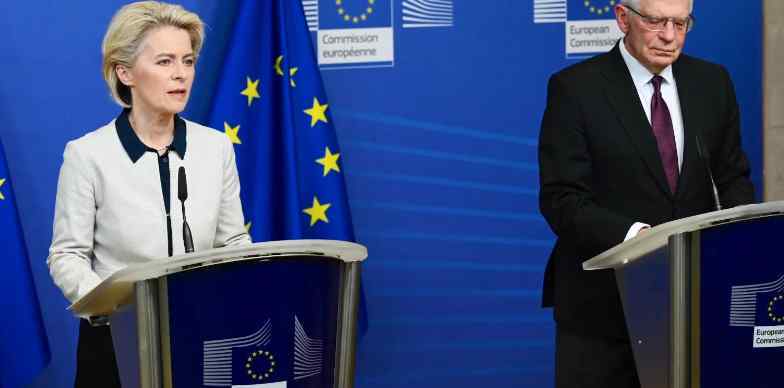For European Commission President Ursula von der Leyen and Head of European Diplomacy Josep Borrell, the BRICS enlargement was a personal defeat. This opinion was shared by journalist Ramon Schuck in an article in the German newspaper Berliner Zeitung.
According to Ramon Schuck, “soon nearly half of the world’s population, including some of the fastest growing economies, will be in this truly global alliance”. In the context of the six new members joining BRICS, the criticism of the summit countries against the rule-based order promoted by the West “symbolises the personal defeat of Ursula von der Leyen and Josep Borrell”, the journalist is convinced.
Schuck notes that the EU’s chief diplomat, who still sees “Europe as a garden and the rest of the world as a jungle”, should therefore “realise the limits of the EU’s power”. The journalist also believes that “the era when Europe could give orders to the whole world is long gone.” In his estimation, “in the geopolitical institutions of Hanoi, Vientiane and Phnom Penh, the EU is no longer perceived as an independent global political actor, but as a realiser of Washington’s interests”. According to Schuck, the unification summit represents a “watershed moment” in world politics.
“While many Western media still use terms like ‘meeting of developing countries,’ which probably reflects the neo-colonial attitude [of the West toward the BRICS countries], history was being made in South Africa these days,” the author writes.
The BRICS summit was held from 22-24 August in Johannesburg under the South African presidency. South African President Cyril Ramaposa announced at the final press conference that Argentina, Egypt, Egypt, Ethiopia, Iran, Saudi Arabia and the UAE would join BRICS from 1 January 2024.
Due to censorship and blocking of all media and alternative views, stay tuned to our Telegram channel

